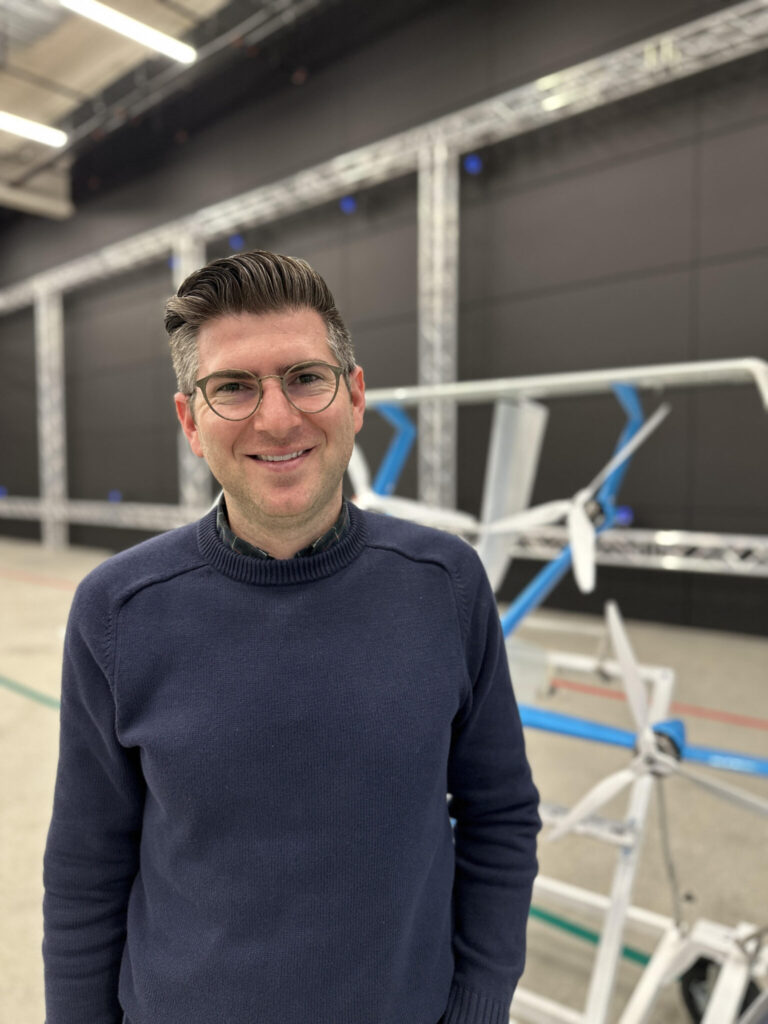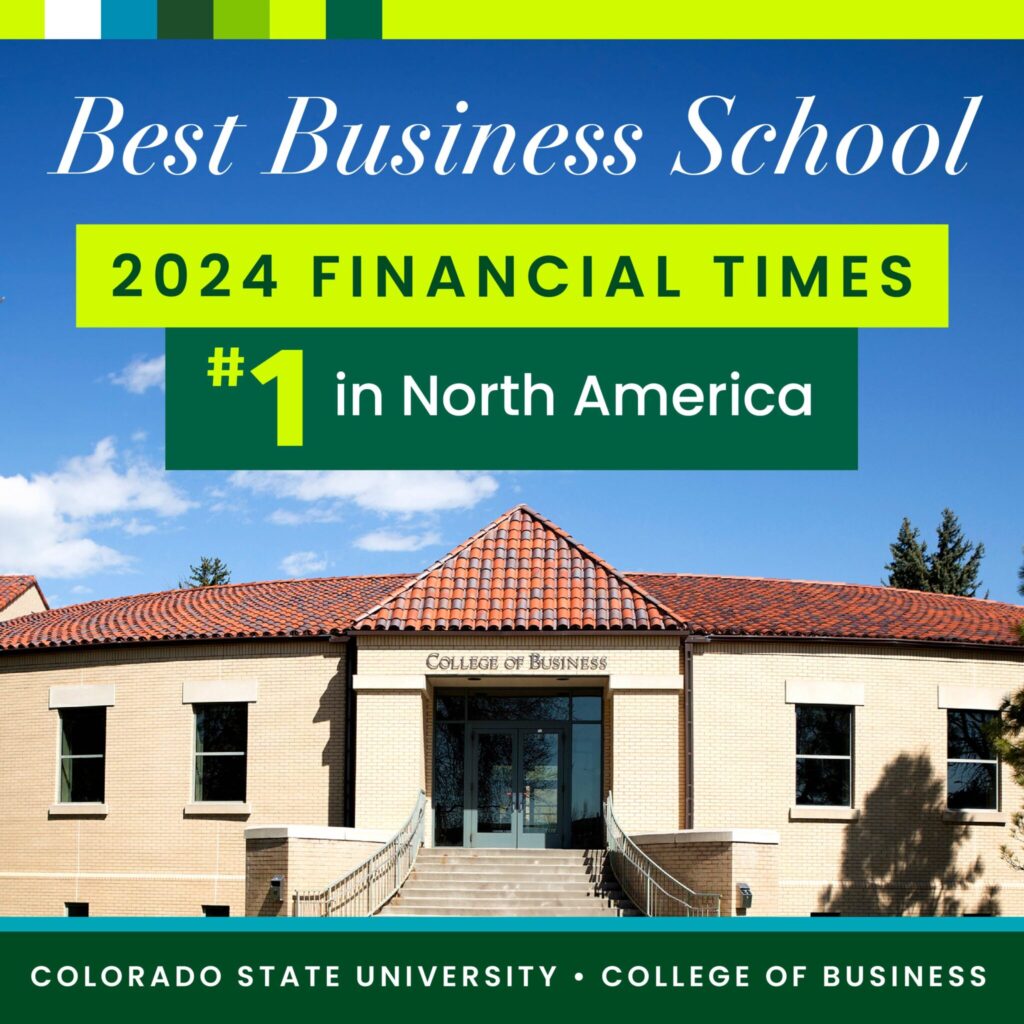Eric Berlinberg remembers exactly where he was when he saw the video of Jeff Bezos unveiling Amazon’s then-nascent drone delivery program to the public.

Berlinberg was in Denver, working for Coca-Cola, but had been itching for a change. He was considering a move to one of the coasts, or maybe a transition into tech, when in late 2013, two things happened that pushed him toward Amazon. First, a friend who worked for the e-commerce giant contacted Berlinberg encouraging him to apply to work at the company. Then he saw the 60 Minutes segment where Bezos described Amazon’s plan for the future: half-hour package delivery by drone.
“I saw this video, and I was like, ‘I’ve got to go work for this company. This is amazing. I want to be a part of this,’” Berlinberg said.
A few months later, in March 2014, Berlinberg started at Amazon, and just a year into his tenure at the company, he was asked to join Amazon’s drone delivery program, dubbed the Amazon Prime Air team, as the head of program management.
Now, after more than a decade at the company, Berlinberg has most appreciated how its corporate culture encourages a bold and innovative approach to problem solving, stemming from a belief that “there’s no problem too hard to solve.” That’s what’s kept him at the company for more than a decade.
Getting involved on CSU’s campus
During his freshman year, Berlinberg began working as a building manager in the Lory Student Center – a job that gave him a glimpse into the myriad ways to get involved on CSU’s campus.
“The role was really cool because I had the opportunity to be in the living room of campus every single day,” Berlinberg said. “I had the opportunity to meet people who worked in the student center, meet organizations that were hosting events there, learn about all the cool student organizations that had offices in the student center and see the daily events going on in the plaza.”
While working one day, he was asked to go unlock a door in the student government offices for the president of the Associated Students of Colorado State University (ASCSU). They talked about ASCSU, and Berlinberg started thinking about how he could get more involved on campus.
Berlinberg was elected as president of ASCSU for his senior year, and while serving in that role, he was introduced to the company that would offer him his first post-grad job.
Berlinberg sat on a committee with then-Vice President of Operations Amy Parsons to review the campus’ beverage contract. The new contract was ultimately awarded to Coca-Cola, and during the transition period, the committee came up with several ways to help Coca-Cola become involved at the University, including bringing the company’s CEO and a large portion of its C-suite on campus for a lecture series.
“I had the privilege of meeting them, and they were asking me what I was planning on doing after graduating college,” Berlinberg said. “I hadn’t spent a lot of time thinking about that because I was so focused on my work as student body president and making sure I was living up to my campaign promises.”
They asked Berlinberg to send in his resume, and he ultimately landed a position at the company. Shortly after graduating in 2012, he started in a management training program, which gave him “a broad overview of the business.” Although he learned a lot, he was eager for “something that was a little more of a grind and faster pace.”
That’s when he applied to Amazon.
Building a career – and a company culture – at Amazon
Berlinberg started at Amazon in early 2014 as chief of staff to a vice president in the company’s e-commerce foundation division. After a year, he joined as an early member of Amazon Prime Air.
“The program grew really, really fast, and it was a very well-funded startup that was exploring this very ambiguous idea of how we can deliver packages by drone,” he said. “It was one of the coolest experiences.”
The program now operates a commercial drone delivery service to customers in College Station, Texas, and recently announced plans to bring a new version of the technology, called the Mark 30, to customers living in Tolleson, Ariz. later this year.
“There’s this element of the culture which is high-ownership and high-bias for action that permeates across everyone in every corner of the company,” Berlinberg said. “They don’t go slow. This is a very high-speed, high-pace environment. It can be perceived as intense, but if you thrive in that type of environment, it’s awesome, because you could essentially do anything and the company is set up in a way that enables you to hop around and go try new things, try a new product, maybe switch roles, try a new team.”
Berlinberg said he’s a rare case in that he’s been working on the same product for more than nine years. Still, his role has evolved along with the product, and he now oversees an organization of dozens of people.
In that quickly growing environment, Berlinberg also saw an opportunity to make the company a better place to work.
“Amazon operates like a federation of a bunch of small businesses, all operating independently, which is kind of a cool model, right?” Berlinberg said. “Amazon leadership approaches problems similar to a venture capital firm, and we operate as startups pitching and building innovative ideas.”
However, it can result in a company that feels siloed, where employees typically interact with other employees within their own division.
“I was trying to figure out, ‘How do I break those barriers and build bridges across organizations? How do I help others learn about what’s happening with different products and services across the company?’” Berlinberg said. This motivated him to start an internal-to-Amazon networking group, Connect@Amazon, that became the company’s largest employee resource group.
Connect@Amazon started as a happy hour group, but as the idea took off, Berlinberg developed a more formal structure for the group. By the end of its first year, it had expanded to half a dozen chapters around the world. At its peak, just before the COVID-19 pandemic, it had expanded to about 70 chapters with about 130,000 participating employees globally – all run by existing Amazon employees like Berlinberg.
Berlinberg pitched the organization and its success to the company’s chief human resources officer on why he thought the company should invest in it. Amazon allocated resources to run the program, creating a sustainable structure that outlives employee volunteers like Berlinberg.
As Berlinberg continues to build his career at Amazon, he’s grateful for what he learned at the College of Business.
“The College of Business really afforded me an amazing opportunity to learn some strong fundamentals that have stuck with me ever since,” he said.
Berlinberg specifically recalls a class on entrepreneurship taught by Travis Maynard, a professor who now serves as the College’s senior associate dean of academic programs.
“That was single-handedly one of the most impactful classes I’ve ever had, because it gave me the opportunity to understand how you start a business and how you grow a business – and what to think about, what questions to ask, how to structure your thinking, what are the biggest problems to solve today versus what should you defer,” Berlinberg said. “Those sorts of principles apply in the world I’ve lived in over the last ten years – it just happens to be in a bigger company with more structure that exists around you.”

CSU’s College of Business is building a community of action-oriented leaders focused on using Business for a Better World through its leading-edge research, accessible education and top-rated undergraduate and graduate programs. Connecting the principles of people, planet, profit, and purpose across organizational business goals has earned the College global recognition, including being named one of five Best Business Schools in the world for responsible business education by Financial Times.